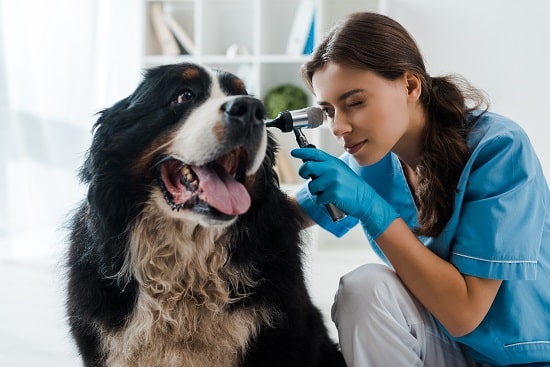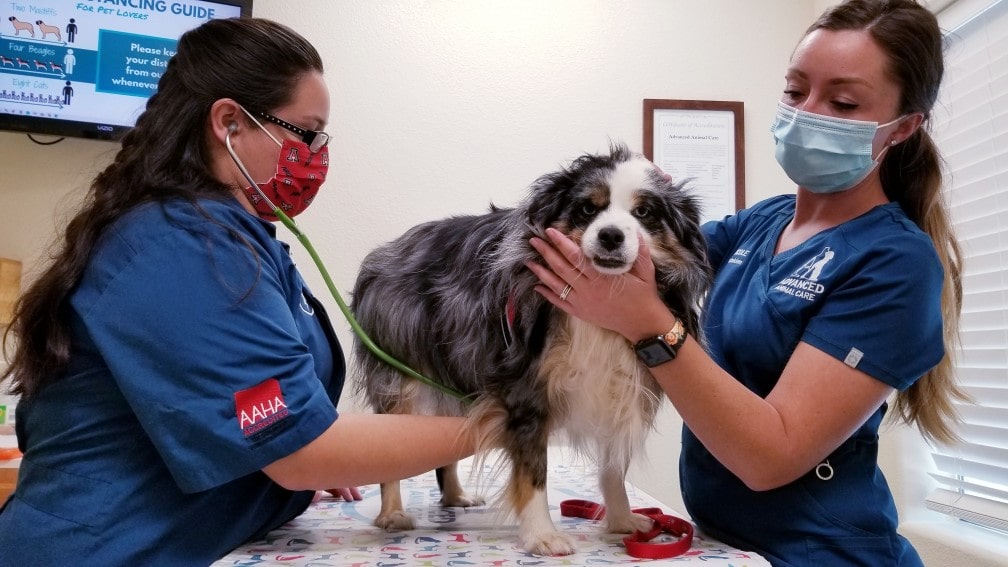Dogs are some of the most adorable creatures on this planet, so many people love having them as pets. There are hundreds of different types of dogs, and like humans, they may also experience numerous health issues.
Dogs are known for their powerful sense of smell and ability to catch sounds inaudible to human ears. A long canal with horizontal and vertical components characterizes the anatomy of the dog ears.
Such elements give rise to an L or J-shaped ear structure that can trap debris easily. Hence, it can lead to infections of the dog ears.
Dog ear infections are prevalent, which is why they are some of the widespread medical conditions experienced by canines.
If you have a dog as a pet, you should not delay when you think your dog has an ear infection and take him straight to the doctor as soon as possible.
Dog ear infections and their types
Canine ears have multiple parts- the ear canal, the eardrum, the middle ear, and the inner ear. Therefore, one of the conditions affecting the dogs’ ears is otitis, an ear inflammation. Depending on the specific location where the infection develops, there can be three distinct types of otitis.
- Otitis externa – Inflammations affecting the ear canal
- Otitis interna – Inflammations affecting the inner ear
- Otitis media – Inflammations affecting the middle ear
Among these three ear infections affecting dogs, the otitis externa is the most widespread, as this part of the canine ear gets subjected to outside factors. The nature of the infection can be chronic, lingering, recurrent, or acute. It is also possible for a do to have conditions in both ears.
Read Also: 8 Excellent Ways to Keep Your Dog Healthy and Happy
Symptoms associated with dog ear infections
Typically, the ears of a healthy dog are always dry and clean. Certain traces of yeast and microscopic bacteria often reside around the outer ear canal of the dog’s ear. On the other hand, there can be an overgrowth of yeast and bacteria that results in infection.
The main symptoms of dog ear infections are as follows:
- Redness
- Foul odor
- Ear discharge
- Painful sensations
- Tilting of the head
- Scratching and itching
- The dog shakes its head frequently
Factors responsible for dog ear infections
Several factors may give rise to ear infections in a dog. For instance, some underlying issues compromise the protective layer in the canine ear to function effectively. As the ear becomes inflamed and moist, bacteria and yeast can grow inside the ear and lead to infections.
The most common factors responsible for ear infections are listed below.
- Polyps
- Ear mites
- Food allergies
- Some forms of cancer
- Environmental allergies
- Trauma or injury to the ear
- Endocrine conditions like hypothyroidism
- Excessive moisture caused by swimming or bathing
- Autoimmune diseases like lupus, vasculitis, or pemphigus
- Foreign bodies like foxtails and grass awns that might get inside the ear
Read Also: Popular Dog Breeds With Their Common Health Issues
Treatment of dog ear infections
Please remember that dog ear infections can’t get proper treatment at home. Therefore, you should immediately consult a veterinarian if you suspect something wrong with your pet dog’s ears. The infection will not resolve on its own.
It means that your dog will need medical attention. Once you consult with a veterinarian doctor, he will perform some diagnostic tests to understand the nature of the ear infection that your dog is having.
For instance, your doctor might look closer at your dog’s ear debris or perform some scans to decide on the proper treatment.
Diagnosis of the ear infection
The veterinarian will perform a swab cytology test to evaluate the presence of fungus or bacterial cells inside the ear. He may also perform blood tests to see any signs of endocrine diseases.
Another way of diagnosing the condition is to perform a culture or sensitivity testing to determine the nature of the bacteria responsible for the infection.
This test can help in deciding on the antibiotics to heal the infection. Other tests performed for diagnosing the condition are a CT scan, x-rays, or an MRI that assist in determining the extent of the severity of the inner ear disease.
Therapeutic measures
Dog ear infections are often treated with topical medicines. For example, a cleansing solution can be combined with an eardrop or an ointment to achieve the best effect. The veterinarian applies the treatment inside the ear canal.
Sometimes, oral antibiotics, steroids, or antifungal medications heal the condition. However, standard medical treatments may not cure the infection if the disease has already become severe.
In such cases, surgery will be the last option used for treatment. The surgical procedure aims to operate inside the ear canal and remove all traces of the infected tissue.
Chronic Infections
It is important to note that treating chronic dog ear infections is a time-consuming and lingering procedure. Your dog will require regular medical attention, and medication should be applied to the affected area once every few weeks.
Unless the underlying condition is treated, the infection can become resistant to the medications used.
Preventing dog ear infections
It is essential to perform regular ear cleaning, ear grooming, and proper ear maintenance. It will help make sure that there are no signs of infections. In addition, it is significant to perform routine ear cleansing in case your pet dog tends to swim frequently.
Finally, always use the best dog ear-cleaning products. The chemical balance inside the dog’s ear needs to be preserved.
FAQs
Que: Causes of Dog Ear Infections:
Ans: Dog ear infections result from allergies, mites, foreign objects, and underlying health issues. Identifying the cause of dog ear infections is crucial for effective treatment.
Que: Common Symptoms of Dog Ear Infections:
Ans: Symptoms include itching, redness, swelling, foul odor, discharge, head shaking, and behavior changes. You can consult a veterinary doctor for a proper diagnosis if these signs arise.
Que: Preventing Dog Ear Infections:
Ans: Regular ear hygiene, especially after water activities, and prompt addressing of allergies can prevent infections. You can consult your vet for tailored preventive measures.
Que: Seeking Veterinary Care for Dog Ear Infections:
Ans: If you observe persistent symptoms or signs of pain, seek veterinary care promptly to prevent complications or the spread of infection.

 DogExpress
DogExpress





















 in Chandigarh, India.
in Chandigarh, India. 
